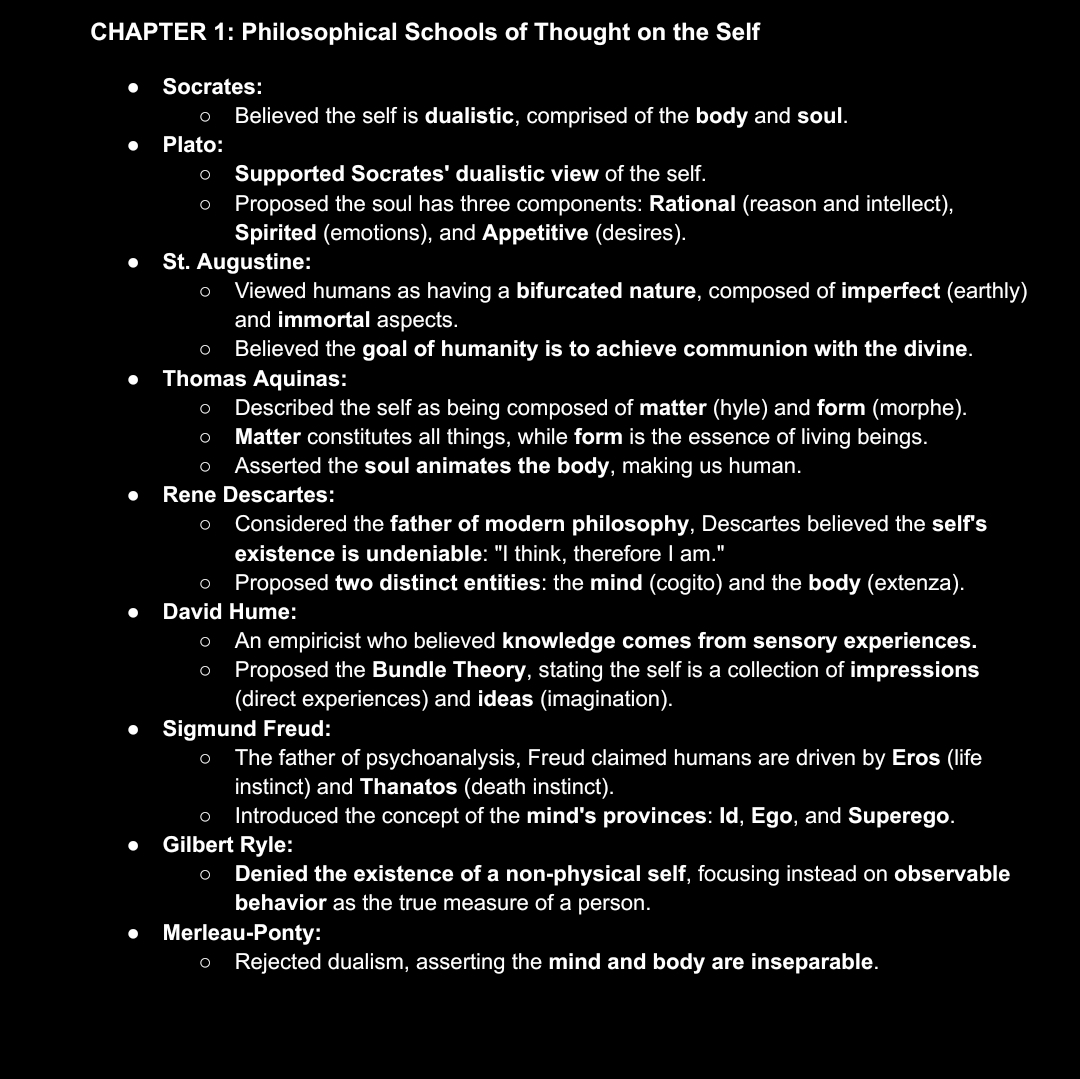What are the philosophical views on the self as described by philosophers like Socrates, Plato, Augustine, Aquinas, Descartes, Hume, Freud, Ryle, and Merleau-Ponty?

Understand the Problem
The question is asking for a summary or synthesis of philosophical views on the self as presented by various philosophers from Socrates to Merleau-Ponty. It outlines their beliefs regarding the nature of the self, its components, and its relationship to the body and mind.
Answer
Socrates: body and soul; Plato: rational, spirited, appetitive components of the soul; Augustine: bifurcated nature (imperfect and immortal); Aquinas: matter and form (soul animates body); Descartes: mind and body (cogito and extenza); Hume: impressions and ideas (Bundle Theory); Freud: driven by instincts (Id, Ego, Superego); Ryle: behavior as self; Merleau-Ponty: inseparable mind and body.
The final answer is a summary of each philosopher’s view on the self.
Answer for screen readers
The final answer is a summary of each philosopher’s view on the self.
More Information
Understanding the philosophical views on the self can provide deeper insights into human nature, personal identity, and the mind-body relationship.
Tips
A common mistake is to confuse the philosophical views by oversimplifying them. It's important to understand the nuances in each philosopher's viewpoint.
Sources
AI-generated content may contain errors. Please verify critical information